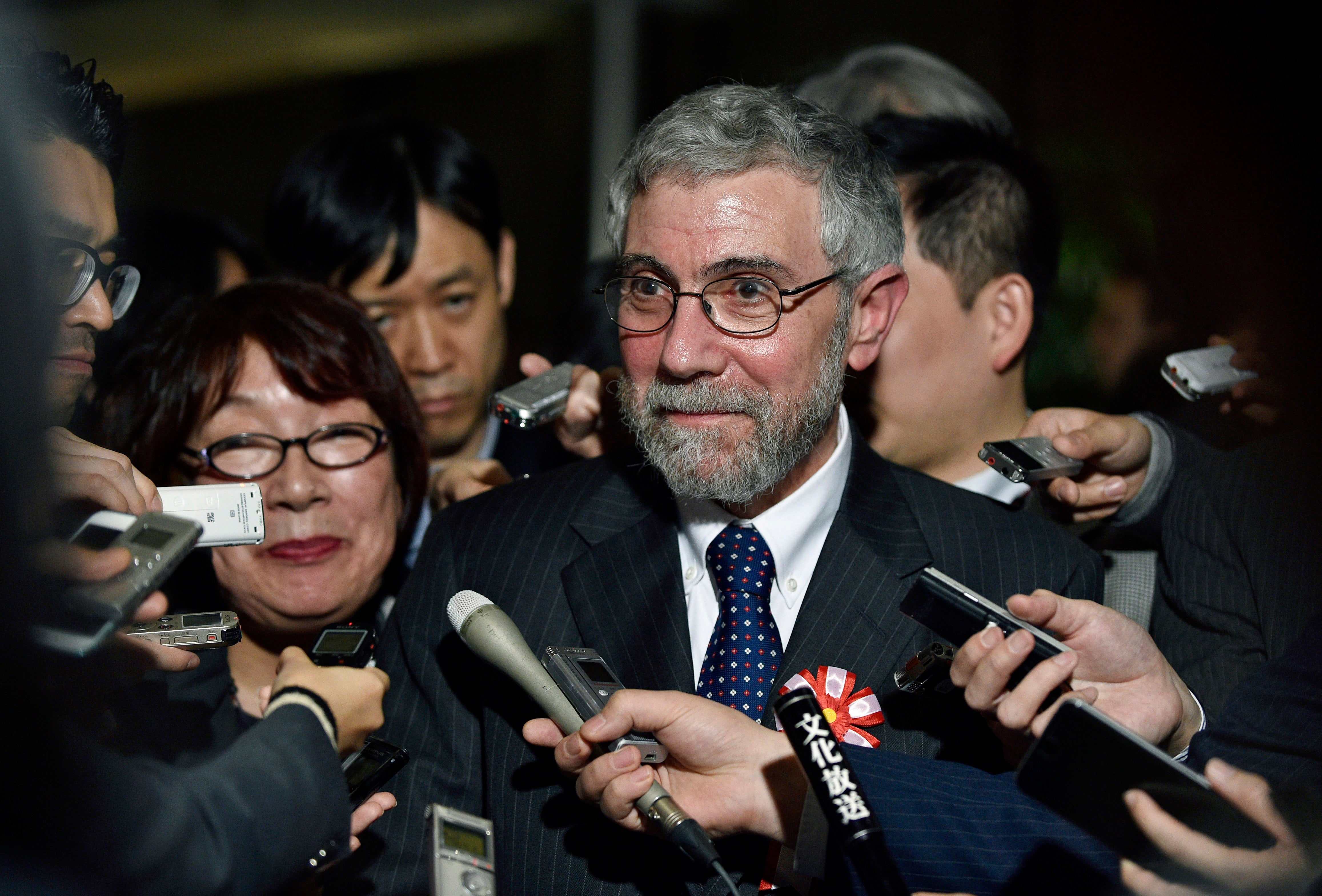The most recent decline in crypto has some blockchain enthusiasts fearing they’re living inside a bear market, where nobody is truly certain how, when, or even if things will get better for digital currencies.
One could easily argue that the crypto naysayers and no-coiners are losing the fight. There are trillions invested in crypto across the world. Banks and companies both big and small race to claim a slice of that ballooning Web3 pie. But with this most recent crypto downturn and a new wave of proposed regulation, some are wondering: have those who stayed defiant of decentralized finance made a real impact on the crypto market?
With the crypto landscape languishing in its most major pothole in years, those who promote crypto still say the ride will never end. Chris Kline, the co-founder of Bitcoin IRA, wrote in Insider that crypto is a “volatile asset class” that has seen its share of peaks and valleys, though its “shown many times over that it’s not only here to stay but will continue to weave itself into the fabric of our lives.”
Despite its continuing popularity, there is still plenty of antagonism to go around. Many of crypto’s biggest critics have come from areas outside or adjacent to the tech space, such as journalists or academics, which has been used to decry the naysayers by claiming they were “FUD-ing” (creating fear, uncertainty, and doubt) or by simply flashing their fat stacks of crypto in critics faces, like founder of the failed Luna and Terra crypto ecosystem Do Kwon once did to a British economist on Twitter, bragging “I don’t debate the poor.” Indeed “good luck being poor” is a constant insult on the side of crypto bros arguing against sceptics.
But there are good faith arguments to be had about the crypto sphere. It’s a technology that’s not going away any time soon, so a few of these big-name crypto heels might play an important part in defining the narrative surrounding crypto beyond the “we’re all gonna make it” attitude.
Molly White

A past Wikipedia editor, the Australia-based Molly White has turned her research skills into what might be the biggest crypto boogeyman blog on the internet. Her site and Twitter profile Web3 is Going Just Great has recorded near-daily examples of scams, rug pulls, failures, arrests, and more going on in the crypto space.
In a recent Washington Post profile, 28-year-old White described how she became interested in the space after first trying to create an entry on Wikipedia describing Web3, and found it incredibly difficult because nobody seemed to share the same definition. She’s since gone on to document the ever-expanding list of crypto scams, failures, mismanagement, and on and on. She was recently one of 26 “technology experts” to sign a letter to Congress to urge crypto industry regulations. She has lectured at Stanford University and provided advice to journalists.
Critics of White say she is too selective and that she mischaracterizes the entire Web3 scene through a selective and bad faith lens. In a Q&A with Slate, White said that much of the pushback she’s received has been at her longer form blog posts about her views on crypto in general. She said that most people are not outright hostile with her site since, more often than not, crypto investors read about failed projects that they’re not involved with, and feel secure that it’s not them feeling the burn.
Ben McKenzie

Compared to the many other celebrities that have become evangelists or shills for the crypto industry, Ben McKenzie — the ex-star of The O.C. and Gotham — stands out. In a New York Times profile starring McKenzie as he and a reporter take a trek out to a Texas crypto mining operation, he explained how he hopped on the anti-crypto train after the start of the pandemic, saying it had no connection to any real-world currency and instead was fuelled by speculation. Now he’s spoken about the dangers of the crypto industry at SXSW and he’s planning to publish a book about crypto alongside The New Republic writer Jacob Silverman.
The ex-”teen-soap star,” as he called himself in a Slate op-ed, wrote with alarm about the growing number of American adults getting into crypto. He’s railed against other celebrities like Kim Kardashian for bringing cryptocurrencies more mainstream, despite how volatile the crypto market can be. He called the “Hollywoodization” of crypto a “moral disaster.”
The self-described no-coiner is a self-acknowledged B-lister in the world of celebrities, yet his stance and constant critique of other pro-crypto Hollywood types has not gone unnoticed by the wider crypto fandom.
Warren Buffett

The enormity of the business magnate multi-billionaire Warren Buffett has made him a mouthpiece for anything that has to do with finances. So when the CEO of Berkshire Hathaway, like many other older financier-types, says bitcoin “doesn’t multiply, doesn’t produce anything,” people tend to listen.
Back in 2018, Buffett told CNBC he predicted crypto would “come to a bad ending.” His negativity from such a high place caused crypto consternation among the biggest evangelists. In April, billionaire Peter Thiel, who’s well-known for his frothing endorsement of cryptocurrencies, called Buffett “enemy number one” and “a sort of sociopathic grandpa from Omaha.”
His claims made at the start of May include that he wouldn’t buy all the bitcoin in the world for $US25 ($35) was like a crack of lightning earlier in May. He called crypto “magic” and not in a good way. He especially goes after cryptocurrencies for not creating value as assets usually do — everything from farmland to apartment buildings generating a use. The price of digital currency simply rises and falls, and investors are simply betting on making a profit before the coin’s worth inevitably falls.
Nassim Taleb

Nassim Taleb, a past hedge fund manager and financial trader, was once a believer in crypto, particularly bitcoin. In 2021, he about-faced, and tore the most popular crypto currency apart by statistically analysing the volatility of digital currencies. All in all, he said bitcoin failed in its promise to be a “currency without government (it proved to not even be a currency at all)” and that it did not represent any safe investment for anyone.
The heel-turn was a surprise from a man who wrote forwards for pro-bitcoin books preaching that digital currencies were the future. Things started to change. He sold his bitcoin and announced on Twitter “a currency is never supposed to be more volatile than what you buy & sell with it. You can’t price goods in BTC.” He started calling out proponents of bitcoin for effectively spreading fraud while ignoring the massive market fluctuations in the crypto sphere. He stopped endorsing his past friend’s book, which resulted in a very painful and very public falling out.
And his crosshairs are no longer just on bitcoin. He recently called the Terra blockchain experiment an “open ponzi” and called for its creator Do Kwon to be put behind bars. His biggest refrain in response to claims that bitcoin is going up, is that in finance, all that matters is “drawdowns,” AKA the decline of a price’s peak to its lowest trough, which help measure overall risk.
Dan Olson

Dan Olson, the producer of YouTube channel Folding Ideas, was not on crypto’s radar until January of this year. Since then, his single two-hour video published in January upended the conversation on NFTs and Web3. His video has been viewed over 8 million times and soured the conversation around crypto as it looked to create new highs into 2022.
Olson’s basic argument is that despite the claim that crypto would fix financial institutions, fix the centralization of the internet, and give people a way to invest and store their money outside of big banks, the crypto industry has become a hotbed of bad faith actors working on a new set of grifts like we saw in the 2008 financial crisis, this time on the blockchain. The scam is hidden by a combination of financial and technological jargon to confuse laypeople into buying into the game, all in an effort to make sure “line goes up.”
Leading figures in the crypto industry did have to respond to Olson, with the most common refrain being that while there are obvious problems it shouldn’t reflect on the whole scene. Some mentioned that Olson was wrong on a few technical points, but overall the best good faith arguments said that many in the crypto community understand the issues at play, but that shouldn’t reflect on the whole system that’s trying to reinvent the financial wheel. Olson responded that accepting internal critique without acknowledging systematic issues makes any attempt at change “toothless.”
Paul Krugman

Paul Krugman, the Nobel prize-winning economist and New York Times columnist, is one of the most recognised faces in economics. He has also never really been a fan of crypto. In 2018, he wrote in his column before speaking at a conference on blockchain that his main problem with crypto was it did not act like any good currency should.
He cited the high costs of doing business (such as gas fees and time it takes to complete a transaction) compared to the trend of quicker and more seamless buying with credit cards and online accounts. The other issue was that crypto could not be connected or backed up by any government or physical asset, instead depending on “self-fulfilling expectations” which lead to grift and might ultimately result in a total crash.
Lately, Krugman has called crypto “the new subprime” referring to the subprime mortgage crisis of the early 2000s, when banks knowingly gave high risk loans out when interest rates were low and house prices were out of control. He feared that investors in crypto were being sold a false bill of goods, unaware of the risks involved. After the most-recent crypto crash, Krugman wrote the crypto bubble had long been wavering. Compared with rising inflation and the cost of living, crypto was inflating at astronomical rates. He was most concerned by people who bought into crypto recently, influenced by the hype and celebrity endorsements.
Peter Schiff

The economist, stock broker, and uber libertarian and constant fixture for right wing economics Peter Schiff, when he’s not being visited by the Internal Revenue Service over being involved with an alleged global illicit money scheme, is a consistent bear on crypto. Called Dr. Doom for correctly predicting the 2008 financial crisis, Schiff has also become an antagonist for bitcoin bros due to his constant predictions of crypto collapse.
Early on in bitcoins lifespan, he compared the cryptocurrency to the tulip mania bubble of 17th century Holland, where contract prices for tulip bulbs reached artificially high levels before collapsing a few years later.
Still, like many financial gamers, it didn’t stop Schiff from having at least some coins in his wallet. Then in 2020, Schiff claimed that his crypto wallet “got corrupted” and that his password no longer worked, invalidating the worth of his bitcoin. Of course, several crypto folks called him out, saying this is mostly on him for getting locked out of his own account.
Yet, the latest crypto slump has given Schiff a breath of vitality, especially for his solid anti-crypto stance on Twitter. His favourite comment is telling the lingering HODLers to sell with the verve of a rooster cawing every other minute, asking if anyone is awake yet.
Moxie Marlinspike

Moxie Marlinspike, a self-described cryptographer and the CEO and founder of messaging app Signal, is closer to the scene than most other crypto critics. In a January blog post, he said that he never had much inclination to dive deeper into so-called “decentralized finance.” When he finally did, his opinions were not all that positive.
Marlinspike’s opinion doesn’t come from a place of antagonism as much as a regular web developer. In order to understand more about Web3, he created an app that let people mint tokens for NFTs and another to create, track, and exchange NFT derivatives (like derivatives of financial assets). Despite his intentions of just discovering what Web3 was all about, he found users had sunk thousands of dollars into his app, leading him to see the entire crypto ecosystem as nothing but a “gold rush.’ What he found is that the general promise of Web3, of a decentralized system where users are stakeholders in the system, is largely bogus. The only important thing about Web3 is making money for the people in charge of the centralised platforms and a few other lucky individuals.
“The people at the end of the line who are flipping NFTs do not fundamentally care about distributed trust models or payment mechanics, but they care about where the money is,” he said.
Ethereum founder Vitalik Buterin posted his response to Marlinspike’s critiques on Reddit, of all places, saying it’s hard to find fault with the Signal developer’s methodologies. Buterin said that the cryptographer was pretty correct of his interpretation of how the space is currently, but argued that’s not where the NFT space might lead.
Marlinspike responded that even if this is the beginning, it’s not much consolation since “from the very beginning, these technologies immediately tended towards centralization through platforms in order for them to be realised… most participants don’t even know or care it’s happening.”
